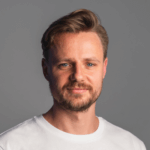There's a story I often share with the product teams across Africa that I work with. A factory's critical machine breaks down, halting production. After multiple engineers fail, a veteran technician studies the machine, taps once with a small hammer on a specific component, and it roars back to life.
His invoice reads: "$10,000 for the fix—$1 for tapping with the hammer, $9,999 for knowing where to tap."
This perfectly captures the essence of building products in Africa today. Success comes from knowing exactly where to focus within our complex, diverse markets that require deep local understanding.
Doing product is hard. Doing product in Africa is borderline insane, and exhilarating.
To understand why "knowing where to tap" matters so much in African product development, let's grasp the sheer complexity of our operating environment. The continent of Africa encompasses 54 dynamic markets, each with unique challenges and opportunities. That's 54 governments, 54 ecosystems, and 54 public sector agendas. In Nigeria alone there are 250 ethnic groups, with up to 400 languages spoken. In Kenya, you have about 50 ethnic groups, with 60 to 70 languages spoken. That's just two countries out of fifty four. This demonstrates the incredible diversity of African markets; global tech narratives discussing "emerging markets" frequently miss these intricate nuances that define our product landscape.
The current economic and global trade environment presents additional challenges. Funding has contracted significantly across the startup ecosystem and enterprise budgets have tightened under increasing economic pressures. Meanwhile, understanding of product management remains limited across many organizations even at the leadership level, creating complex conditions for product development.
This reality demands highly adaptive product operating models, approaches designed to help teams navigate uncertainty while building solutions that genuinely serve African communities.
Given this complexity, you might think recent tech advances would simplify things. In some ways, they have. The advent of Artificial Intelligence and no-code tools have simplified the building process itself, leveling the field when it comes to tech delivery. However, these tools haven't eliminated the need to understand which problems actually matter to people across Africa. The ease of building has made product discovery even more crucial.
Now that we are in an era where anyone can create an app in hours, the real differentiator is now about knowing which apps are worth creating in the first place. This point is especially salient in a complex marketplace like Africa, and is one that many African product teams are coming to terms with.
I often ask product leaders and teams the question that cuts through analysis paralysis: "What would be stupid for us to do in the next 90 days, and what would be stupid for us not to do in the next 90 days?". In resource-constrained environments, this clarity becomes essential.
This emphasis on figuring out the right problems to solve brings me to one of the most critical principles in product development. ‘Fall in love with the problem, not the solution’ is a guiding mantra for product teams worldwide, but in African contexts, it is an absolute necessity. The diversity of our markets demands exceptional problem understanding before any solution can find success, and I've seen this play out in some fascinating ways through my coaching work.

A fellow from Kenya I worked with at the Centre for A Reimagined Africa's Public Sector Fellowship tackled gender-based violence reporting. Her initial focus centered on creating a mobile reporting app, assuming technological barriers prevented victims from coming forward. Through guided discovery sessions, she uncovered a completely different reality: victims primarily feared their reports would become known within tight-knit communities. This insight fundamentally changed her approach to developing a system that emphasized confidentiality protections and community support structures.
This example highlights why obsessing over the problem becomes particularly important in African product development. Our diverse markets have fewer established patterns to follow, and local nuances in infrastructure, community dynamics, culture, and resource availability create challenges that actively resist standardized solutions.
The depth of understanding required for this kind of discovery work is where Africa has a unique advantage that I call our "Grey Gold." As our tech and product ecosystems mature, successful teams are increasingly recognizing the value of intergenerational collaboration. These teams combine youth's natural facility with new technologies alongside the deep contextual understanding that comes only through experience.

A young developer might know exactly how to build an insurtech solution quickly and efficiently, while a seasoned insurance veteran understands why communities view insurance with deep suspicion and knows the relationship-building techniques needed to overcome generations of mistrust. Product veterans aka Grey Gold like myself are working to train, coach, advise, and consult with promising product leaders and teams, creating this powerful match between worldly experience and youthful energy.
This 'Grey Gold' represents Africa's original AI—Accumulated Intelligence. While the world grapples with the impact of artificial intelligence, we're leveraging the accumulated intelligence of generations who understand these markets at a level that no algorithm can replicate.
This accumulated intelligence has taught me that while global frameworks offer valuable structure, African contexts demand thoughtful adaptation beyond just applying Silicon Valley best practices. The most successful product teams I work with have developed approaches specifically calibrated to local realities.
This adaptation recognizes that product excellence in Africa requires prioritizing different elements. This was the crux during a session I facilitated in Estonia at the Africa Business Forum with African and Estonian product leaders on entering and doing product in African markets.
The key insight: Most of Africa operates as what Smart Africa CEO Lacina Koné calls a "truth economy." Everything must be verified, documented, and proven because there's inherently lower trust between parties. In African markets, you're building both technology and the verification systems that create confidence. This is a significant shift for Estonian companies that operate in a "trust economy" just like most nations in the West.
The approach that has consistently shown success across the continent emphasizes four fundamentals from my viewpoint as a product leader:
These fundamentals work well when you have the right leadership structure in place, which brings me to another critical aspect in the African product development space. The challenging conditions across African markets require specialized approaches to product development and leadership. When funding contracts and product understanding remains limited even at senior levels, teams need frameworks specifically designed for navigating uncertainty while maintaining forward momentum.
In these environments, product operating models become essential guidance that keeps teams focused and productive when everything else feels chaotic. Product people serve as stabilizing forces in crazy environments, constantly translating uncertainty into actionable strategies that their teams can actually execute. Now, this assumes these teams are empowered by product leadership, a component of team success that is non-negotiable.
Key elements include navigating dynamic market forces when political, economic, social, and technological factors shift rapidly across African markets. Teams must develop agility to quickly assess which parts of their plans remain valuable when these forces create significant change.
Continuous discovery and validation means regularly asking "Why are we doing this again?" to allocate resources effectively when every decision carries real weight. Strategic timing decisions become crucial when resources are limited and market windows can open and close quickly.
All of these individual team capabilities become even more powerful when they're supported by a broader ecosystem of learning and collaboration. The transformation of Africa's product landscape requires intentional ecosystem development, and events like the Inspire Africa Conference demonstrate what's possible when the pan-African product community comes together. The conference brings together nearly 1,000 attendees from across the continent, backed by SVPG and Innovate Africa Foundation.

Beyond conferences, initiatives like UNDP's Timbuktoo represent ambitious efforts to build comprehensive startup ecosystems with $1 billion targeted over 10 years to support 1,000 tech startups across Africa. Programs like BimaLab Accelerator demonstrate sector-specific focus, in this case supporting insuretech startups across African countries to develop solutions for underserved communities.
The 2024 IAC theme "Product Is Hard" acknowledged something we all experience but don't always discuss openly: this work is genuinely challenging, especially within Africa's complex environments. These gatherings and programs create spaces for honest conversations about what's actually working and what isn't, building connections that extend far beyond individual events.
One element that consistently emerges from these ecosystem-building efforts is the critical importance of coaching. Coaching is critical for building fully empowered product teams and leaders across Africa. The Product Leadership Accelerator is designed specifically to develop product leadership capabilities across the continent in ways that acknowledge local realities.
Even in the public sector, programs like the Centre for A Reimagined Africa's Public Sector Fellowship are ensuring that government leaders embrace product management thinking in their approach to citizen services. Public sector leaders are learning to approach citizen product development with the same discovery-driven, iterative mindset that creates successful products in the private sector.
There are strong and credible product coaches doing exceptional work across the continent, and these professionals should be a top priority for teams and leadership looking to build great products in African contexts.

African product teams operate in environments that often require more creative approaches than what traditional frameworks suggest. The teams that are thriving in these conditions have learned to embrace adaptive product operating models while grounding themselves in deep local understanding. They understand that every problem exists in multiple layers, where what appears straightforward on the surface often reveals complex social, cultural, and economic dynamics underneath. They navigate markets where verification comes before belief, where proof must precede trust. They leverage intergenerational wisdom and adapt global frameworks to local realities.
Most importantly, they recognize that doing product in Africa is a communal effort in developing uniquely African solutions to uniquely African challenges.
The best African product teams write their own playbooks. That's the real $9,999 superpower—knowing exactly where to tap.
Join us at the Inspire Africa conference in Rwanda, Africa on 14-17 October 2025.








